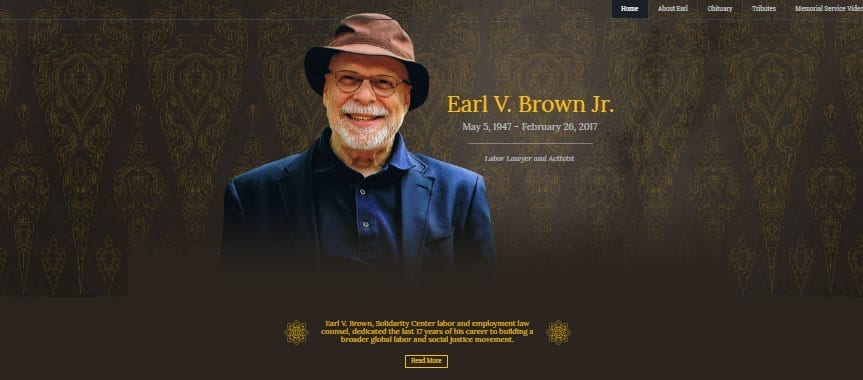
Mar 28, 2017
A moving online tribute to Earl V. Brown, Jr., includes remembrances from family, friends and colleagues whose lives Brown touched around the world and features a video of the March 25 memorial service commemorating Brown’s deep dedication to achieving worker justice.
Brown, Solidarity Center labor and employment law counsel, was a passionate civil-rights champion, tireless defender of workers and brilliant intellect who passed away in February following a brief illness.
A poem on the memorial site by Langston Hughes, one of Brown’s favorite poets, embodies Brown’s passion for justice, with the words “Freedom is a strong seed, planted in a great need”—a fitting description of Brown’s life work seeding justice, freedom and dignity for workers and marginalized peoples everywhere.
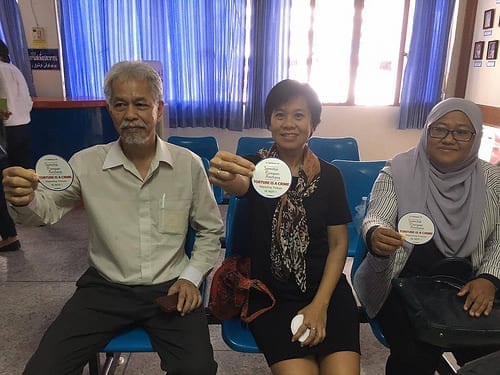
Mar 2, 2017
The global labor and human rights communities welcomed news that Thailand’s military on Tuesday withdrew criminal complaints against three human rights activists who recently documented torture in the country’s three southern provinces, and announced plans to work with human rights groups to further verify human rights violations and reduce their occurrence.
The charges proposed by Thailand’s public prosecutor against Somchai Hom La-or, Pornpen Khongkachonkiet and Anchana Heemmina on criminal defamation and computer crimes had carried a maximum penalty of seven years’ imprisonment plus fines of up to 300,000 baht ($8,330).
Thailand’s Internal Security Operations Command (ISOC) had filed a complaint against the three in May 2016, claiming the reputation of the army was damaged by allegations in, “Torture and Ill Treatment in Thailand’s Deep South,” a report published in February 2016 describing 54 cases of alleged torture by the Royal Thai Police and Royal Thai Army. The Cross Cultural Foundation (CrCF) and Duay Jai Group, two human rights groups, published the report.
Pramote Prom-in, spokesman for the ISOC, said the charges were dropped because they “want cooperation between NGOs and officials to be able to move forward in the future.”
ISOC says it will work with civil-society groups to verify reports about rights violations, reduce abuses using a new: ”joint committee” to verify accusations, and design mechanisms to prevent future abuses.
The global labor and human rights communities continue to urge the Thai government to amend the nation’s penal code to remove criminal penalties for defamation.
Hom La-or, a CrCF advisor, is founder and secretary-general of the Human Rights and Development Foundation (HRDF), a Solidarity Center partner that focuses on migrant worker rights. He has actively defended human rights in Thailand for decades, since the start of the country’s modern human rights movement. In October 1973, while studying for a law degree from Thammasat University, Somchai Hom La-or became a leader in the mass student-led protests against the military dictatorship that had ruled the country for over a decade.
Pornpen Khongkachonkiet is director of CrCF, which assists marginalized communities, especially torture victims and their families in Southern Thailand, access justice. Anchana Heemmina is founder and director of Duay Jai Group (Hearty Support Group), and Patani Human Rights Organization Network.
“[W]e will not back down from exposing rights violations,” Somchai Hom La-or said last year after being charged with defamation. “For a conflict-ridden region like the deep south, we need to expose human rights violations to bring true peace.”
Jan 28, 2017
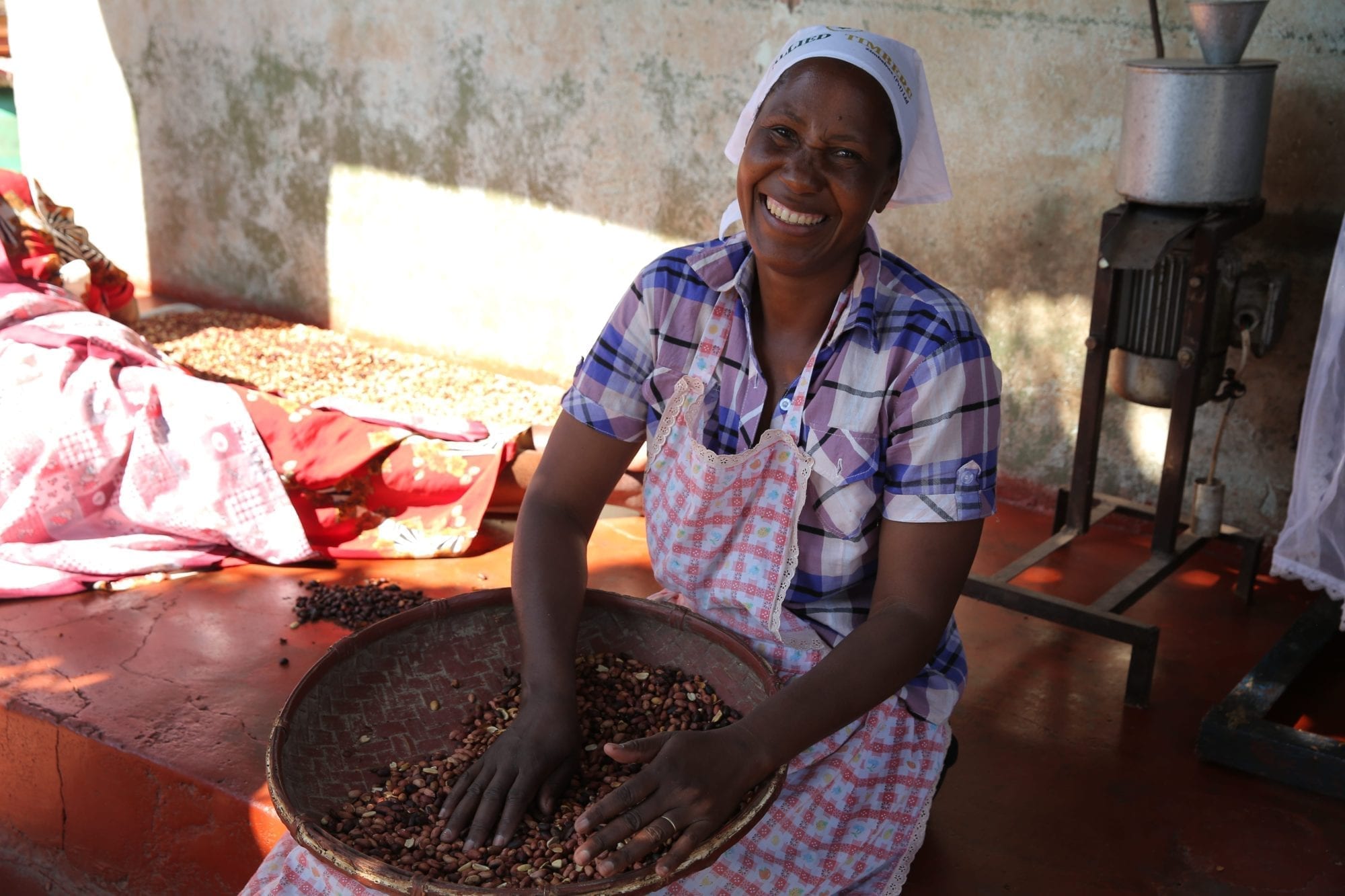
Jan 19, 2017
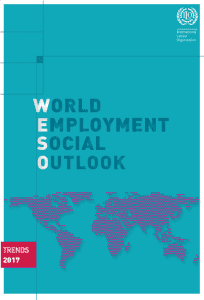
A new International Labor Organization report raises concerns about the ability of the global economy to generate sufficient jobs, improve the quality of employment and ensure that the gains of growth are shared.
“World Employment and Social Outlook: Trends 2017,” finds that disappointing economic growth predicts high unemployment and decent work deficits, including an increase in precarious work. It projects global unemployment to increase by 3.4 million workers in 2017, bringing total global unemployment to more than 201 million people.
In addition, the report’s authors warn that vulnerable employment and working poverty will remain pervasive, and that limited job opportunities and rising social discontent will continue to fuel growing rates of migration. Nearly half of workers in Southern Asia and nearly two-thirds of workers in sub-Saharan Africa were living in extreme or moderate working poverty in 2016.
In other findings:
- Deterioration of labor market conditions will be most severe in emerging countries, while chronic, poor-quality, employment will remain center stage in developing countries.
- The number of workers in vulnerable forms of employment will remain above 42 percent of total employment this year, or 1.4 billion worldwide—including almost four in five workers in developing countries. The two regions most affected will be Southern Asia and sub-Saharan Africa.
- Reductions in working poverty are slowing, endangering the prospects for eradicating poverty as set out in the Sustainable Development Goals.
- Gender disparities in labor market opportunities will persist, with vulnerable forms of employment continuing to be consistently higher for women across Africa, Asia and the Pacific and the Arab States. Meanwhile, the gender gap in hourly wages—which reaches as high as 40 per cent in some developing countries—will persist despite improvements in equal pay legislation.
Recommendations in the report include that measures addressing the causes of stagnation and structural impediments to growth be placed at the forefront of policy agendas, and that policy be focused on how to overcome structural impediments to growth—including inequality.
As the report finds: “The rights to freedom of peaceful assembly and of association are … key to the realization of both democracy and dignity, since they enable people to voice and represent their interests, to hold governments accountable and to empower human agency.”
Read the full report here.
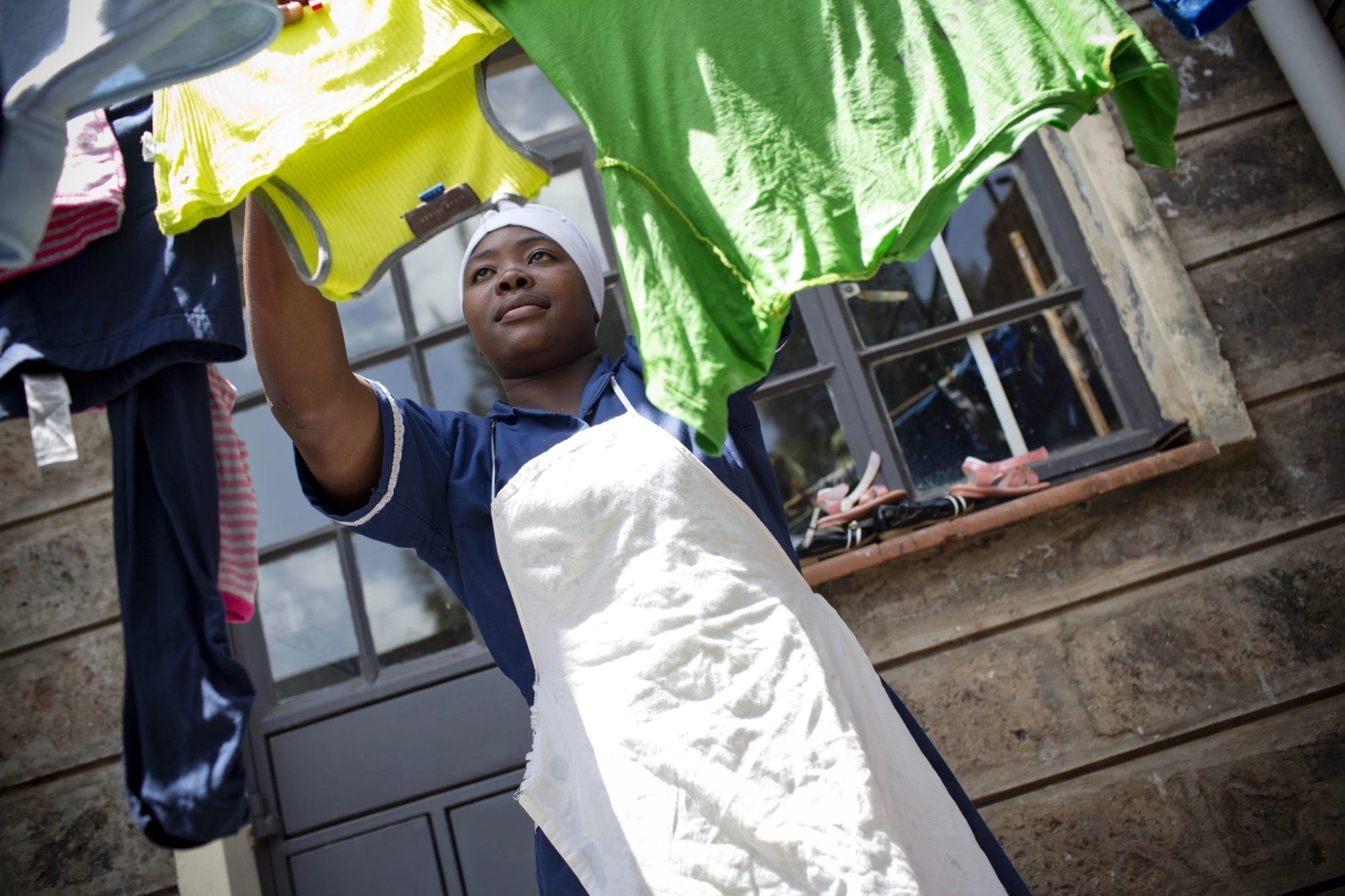
Nov 2, 2016
While all work has value, not every job is a “good job.” Millions of jobs around the world do not offer the social protections or the sense of dignity that allow workers to enjoy the benefits of their own hard work. The Solidarity Center partners with unions and other allies to empower workers around the world to achieve decent work together.
A new Solidarity Center photo essay showcases the success stories of many of the Solidarity Center’s allies in attaining decent work in industries around the world.
Make Every Job a Good Job: Workers Achieve Decent Work Together, celebrates the efforts of working people as they organize and fight for better wages, safer working conditions and other protections on the job.
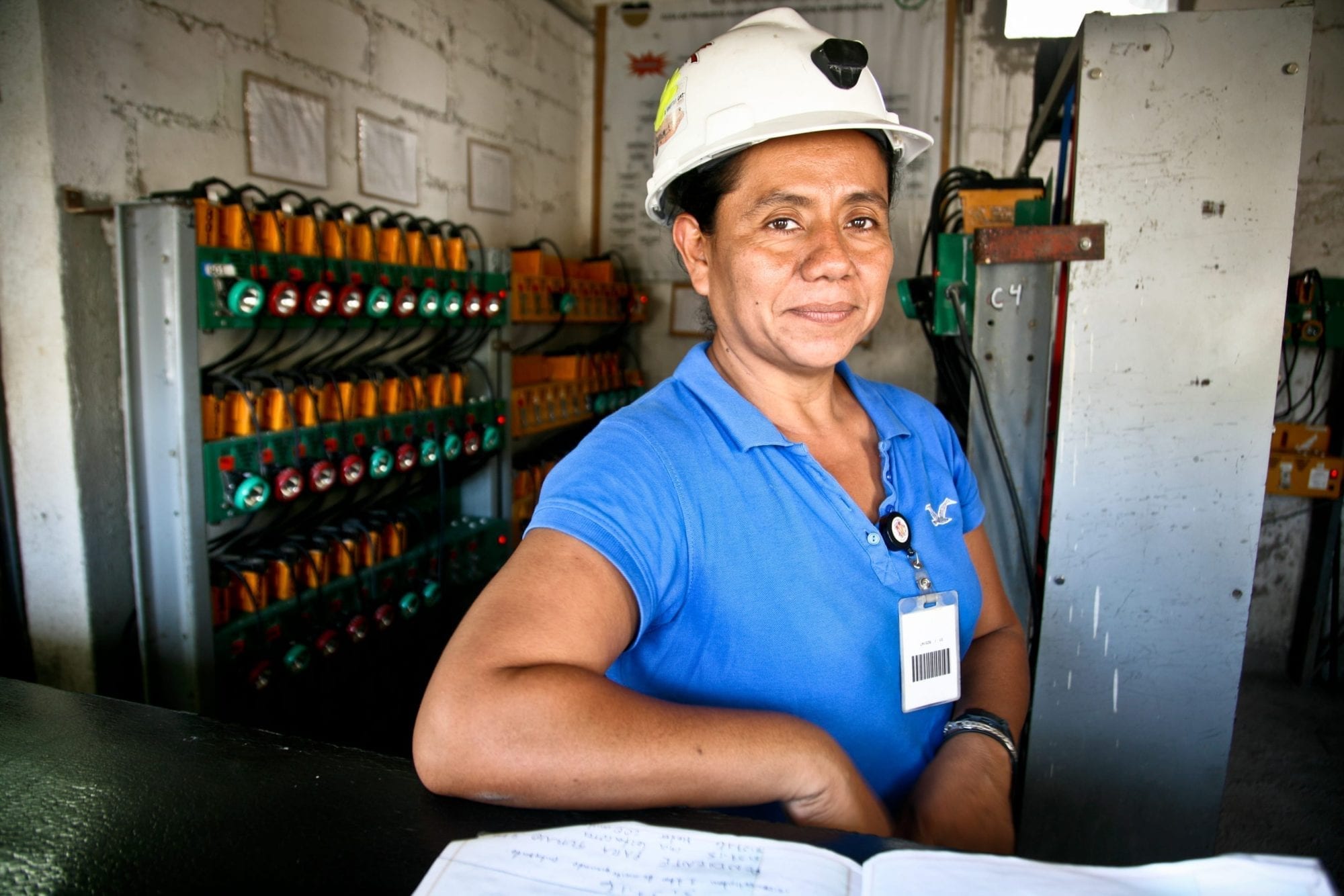
Oct 7, 2016
Workers rights—and the freedom to form unions and freely assemble—are key to achieving human rights, according to a new report by UN Special Rapporteur on the rights to freedom of peaceful assembly and of association Maina Kiai. The Solidarity Center is among organizations contributing to the research.
“This report is a clear call to action to governments and employers to immediately recognize worker rights, and for the broader human rights community to advocate for them,” says Solidarity Center Executive Director Shawna Bader-Blau.
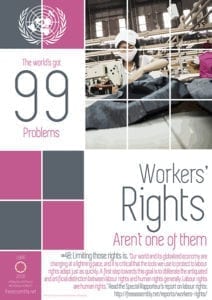 As the report finds: “The rights to freedom of peaceful assembly and of association are … key to the realization of both democracy and dignity, since they enable people to voice and represent their interests, to hold governments accountable and to empower human agency.”
As the report finds: “The rights to freedom of peaceful assembly and of association are … key to the realization of both democracy and dignity, since they enable people to voice and represent their interests, to hold governments accountable and to empower human agency.”
The report, which will be presented to the UN General Assembly on October 20, highlights how the vast majority of the world’s workers are disenfranchised from their rights to assembly and association—rights that are fundamental to all other human rights—either by exclusion or outright oppression.
Among the findings:
- Without assembly and association rights, workers have little leverage to change the conditions that entrench poverty, fuel inequality and limit democracy.
- Millions of informal workers labor in global supply chains, where some of the worst abuses of freedoms of association and peaceful assembly are found—and where migrant workers are often concentrated.
- Discrimination, abuse and relegation to jobs at the bottom of the global economy undermine women workers’ ability to join and form organizations that defend their interests.
October 21 UN Report Launch Event in New York
On October 21, following the official presentation of the report, human rights activists, trade unionists, representatives of UN agencies and other members of civil society from around the world will gather at UN headquarters in New York to discuss this seminal report with Kiai.
(RSVP at information@solidaritycenter.org)
Panelists at the launch event at the UN will discuss freedom of association in the global economy against the backdrop of government and employer repression of trade union rights and freedoms, attacks on the right to strike and the disenfranchisement of the vast majority of the world’s workers from their fundamental human rights to organize—with a special focus on women workers, migrant workers, the business and human rights agenda and governance in an era of global supply chains.
Kiai will keynote the event, which will include speakers from unions in Swaziland, Honduras, Mexico and beyond, along with representatives from Human Rights Watch, ITUC, the ILO, UN Women, and members of the business and human rights communities.
The event is co-sponsored by the AFL-CIO, Ford Foundation, Human Rights Watch, International Trade Union Confederation and the Solidarity Center, among others.
Read the full report.







 As the report finds: “The rights to freedom of peaceful assembly and of association are … key to the realization of both democracy and dignity, since they enable people to voice and represent their interests, to hold governments accountable and to empower human agency.”
As the report finds: “The rights to freedom of peaceful assembly and of association are … key to the realization of both democracy and dignity, since they enable people to voice and represent their interests, to hold governments accountable and to empower human agency.”